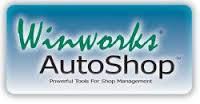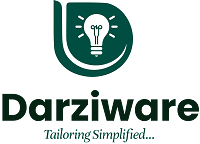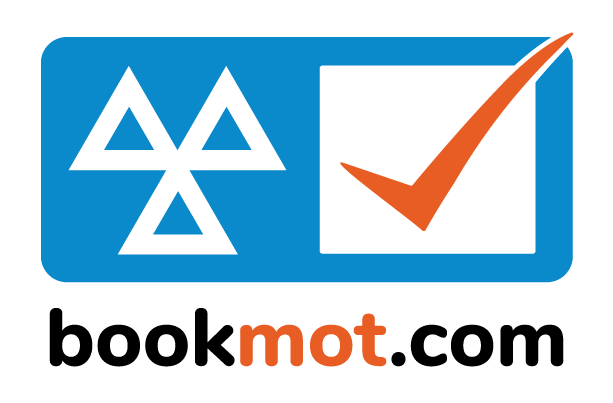What Is Workshop Management Software?
Workshop management software serves as an effective instrument for enhancing and refining the operational efficiency of workshops, garages, and various automotive repair enterprises. This software integrates multiple features to assist business owners and managers in effectively managing various aspects of their workshop, including scheduling, invoicing, inventory, and customer management.
Workshop management software serves as a centralized platform for businesses to monitor and manage all operations in a single location. This reduces the necessity for numerous systems and manual procedures, thereby conserving valuable time and resources for businesses. The robust scheduling capabilities of workshop management software are a key feature.
This tool enables businesses to efficiently create and manage appointments, allocate resources and personnel, and monitor the status of each task. This improves efficiency and enhances customer experience by reducing wait times and ensuring timely deliveries. In addition to scheduling capabilities, workshop management software provides comprehensive inventory management functionalities.
This enables businesses to monitor their components and inventory, regulate stock levels, and establish automatic reordering processes. This guarantees that workshops consistently possess the required parts and supplies, thereby minimizing downtime and enhancing productivity. The invoicing and billing functionality is another essential component of workshop management software.
This feature enables businesses to produce precise and professional invoices, accommodate various payment methods, and monitor payment transactions effectively. This simplifies the billing process, enhances cash flow, and minimizes errors.
Alongside these primary features, workshop management software provides additional tools, including customer relationship management, reporting and analytics, and integrations with accounting and marketing software. These features offer businesses a holistic solution for effectively managing operations and monitoring critical data and insights.
What Are the Recent Trends in Workshop Management Software?
With ongoing technological advancements and the pursuit of efficiency and organization by businesses, the popularity of workshop management software has risen significantly. This software is designed to optimize the workflow of workshops or automotive repair businesses, facilitating task management and enhancing productivity.
Recent years have witnessed notable trends in the development and utilization of workshop management software, rendering it a significant investment for workshop owners. The integration of cloud-based technology is a significant trend in workshop management software.
The software is accessible from any device with an internet connection, facilitating real-time updates and communication among staff members. This trend has proven advantageous for workshops operating across multiple locations or teams requiring collaboration on projects. It facilitates seamless integration with other software systems, including accounting and inventory management.
Alongside cloud-based technology, there has been an emphasis on mobile accessibility in workshop management software. The increasing use of smartphones and tablets for business has prompted software developers to create mobile versions of workshop management software.
This enables managers and technicians to access critical information and perform tasks remotely, enhancing efficiency and minimizing reliance on physical paperwork. A notable trend in workshop management software is the incorporation of artificial intelligence and data analysis. This technology enables the software to analyze maintenance and repair data for predicting future issues and optimizing maintenance schedules.
This system enhances inventory management through the automatic tracking of supplies and the ordering of essential components. Artificial intelligence enables workshop owners to make data-driven decisions that enhance business operations and minimize downtime. Furthermore, customization and personalization have emerged as significant trends in workshop management software.
Each workshop is distinct, and their software requirements may vary. Developers have acknowledged this and begun providing customizable features to adapt the software to the specific requirements of each workshop. This may involve establishing tailored work order templates, generating customized reports, and integrating particular tools or features.
Benefits of Using Workshop Management Software
Managing a workshop involves the organization and coordination of various tasks and processes, including appointment scheduling, inventory tracking, and financial management. This can frequently lead to an overwhelming and time-consuming experience, detracting from the productivity and efficiency of a workshop. Workshop management software addresses this issue by automating and optimizing multiple facets of workshop management.
These are the advantages of implementing workshop management software in a business context.
1. Improved Productivity and Efficiency: A key advantage of workshop management software is its capacity to enhance productivity and efficiency. This software offers automated scheduling and streamlined communication, thereby eliminating manual tasks and minimizing the risk of human error. Consequently, it enables users to save time and concentrate on other critical aspects of their workshop.
2. Centralized Information Management: Workshop management software serves as a central repository for all workshop-related information, encompassing customer profiles, inventory levels, and financial records. This removes the necessity for multiple systems or paper records, facilitating real-time access and updates of information.
3. Enhanced Customer Service: Workshop management software facilitates appointment scheduling, service history tracking, and the automation of customer reminders. This approach saves time and effort while enhancing the customer experience, resulting in increased customer satisfaction and retention.
4. Streamlined Inventory Management: Monitoring inventory levels and orders is essential for effective workshop management. Workshop management software facilitates the automation of inventory tracking and provides notifications for low stock levels, thereby ensuring the availability of essential parts and supplies.
5. Accurate Financial Tracking: Workshop management software enhances financial processes, facilitating the tracking of expenses, the generation of invoices, and the management of payments. This approach not only conserves time but also mitigates the risk of errors, thereby ensuring precise financial records for the organization.
6. Customizable Reports and Analytics: Workshop management software enables the generation of tailored reports and analytics, facilitating a comprehensive understanding of workshop performance. This data facilitates the identification of improvement areas and supports informed business decision-making.
Important Factors to Consider While Purchasing Workshop Management Software?
Effective management of a workshop can be significantly enhanced by the appropriate software. The abundance of options in the market can make selecting the most suitable one for your business a challenging task. Several critical factors should be considered when purchasing workshop management software.
1. Features and Functionality: The primary consideration is the software's features and functionality. Ensure it includes all essential tools and features to address the specific requirements of your workshop. Key features to consider include scheduling, inventory management, billing and invoicing, customer management, and reporting.
2. Usability: The software must exhibit user-friendly characteristics and facilitate straightforward navigation. An intricate and unclear interface may result in decreased efficiency and increased frustration for both you and your employees. Seek software characterized by a straightforward and user-friendly design that necessitates minimal training for effective utilization.
3. Customization Options: Each workshop possesses distinct processes and workflows. It is essential to select software that provides customization options to align with specific requirements. This will guarantee that the software integrates effectively into your workshop operations and enhances operational efficiency.
4. Integration with Other Systems: In the current digital landscape, numerous workshops utilize various software and tools to oversee distinct facets of their operations. It is crucial to select workshop management software that integrates with other systems, including accounting software, CRM, and payment gateways. This approach reduces time and effort by removing the necessity for manual data entry.
5. Customer Support: Technical issues may occur with any software, making it essential to have dependable customer support available for assistance. Prior to making a purchase, assess the availability and responsiveness of the customer support team. Examine reviews and ratings from existing customers to assess the quality of support offered by the software company.
6. Scalability: The workshop is likely to expand and develop, necessitating that the software can accommodate this growth. Evaluate the software's scalability to determine its capacity to meet future requirements and support business expansion. This approach will mitigate future software transition challenges and associated costs.
Considering these factors enables the selection of appropriate workshop management software, which can enhance operational efficiency and contribute to business growth.
Consider your specific requirements, financial constraints, and long-term objectives when making your decision. Utilizing appropriate software can significantly enhance the success of your workshop.
What Are the Key Features to Look for in Workshop Management Software?
In the pursuit of optimal Workshop Management Software, several essential features warrant consideration. These features will enhance workshop operations while improving efficiency and productivity.
The following are the essential features to consider in Workshop Management Software:
1. Scheduling and Appointment Management: The software must possess the capability to schedule appointments and efficiently manage the workshop's calendar. This will assist in preventing overlapping appointments and ensuring precise resource allocation.
2. Inventory Management: A critical component, inventory management enables the monitoring of stock levels within your workshop. This system facilitates the monitoring of components and materials utilized, tracks expenditures, and automates the reordering of items with low inventory levels.
3. Invoicing and Billing: This feature enables the generation, transmission, and tracking of invoices directly within the software. The system should include an online payment option to facilitate customer transactions for services.
4. Customer Database Management: The software must include a secure and accessible database for the storage and management of customer information. The system must possess capabilities for profile creation, customer history tracking, and the storage of essential notes.
5. Electronic Vehicle Inspection and Diagnostics: This functionality allows for the electronic execution of vehicle inspections, thereby optimizing time efficiency and minimizing paperwork. Diagnostic tools must be included to facilitate the rapid and precise identification of issues.
6. Reporting and Analytics: Seek software that offers comprehensive reports and analytics to facilitate the tracking and measurement of your workshop's performance. This data will facilitate the identification of areas for improvement and support informed business decision-making.
7. Mobile Compatibility: A mobile-friendly software enables users and technicians to access the system remotely, at any location and time. This feature is particularly beneficial for workshops conducted across various locations.
8. Integration with Accounting Software: Evaluate software that offers compatibility with widely used accounting platforms such as QuickBooks or Xero. This integration will enhance the efficiency and precision of bookkeeping.
9. User-Friendly Interface: An intuitive interface facilitates navigation for both users and staff within the software. Seek software that is user-friendly, straightforward, and necessitates limited training.
10. Customer Support: Finally, evaluate the quality of customer support offered by the software company. Ensure the provision of timely support and the existence of a dedicated team to address any potential issues.
Why Do Businesses Need Workshop Management Software?
Workshops are an essential part of many businesses, whether it is for training, team building, or production purposes. However, managing a workshop can be a daunting and time-consuming task. This is where workshop management software comes into play.
This type of software is specifically designed to streamline and automate various workshop management tasks, making the entire process more efficient and organized.
One of the main reasons why businesses need workshop management software is to save time and increase productivity. With this software, businesses can easily schedule and plan workshops, send out invitations, and manage attendee lists, all with just a few clicks. This eliminates the need for manual processes and reduces the chances of human errors.
Moreover, workshop management software also offers features such as automated reminders and notifications, which helps businesses stay on top of their workshop management tasks and ensures that everything runs smoothly. This means less time spent on administrative tasks and more time focused on the workshop itself.
Another crucial benefit of using workshop management software is the ability to track attendance and collect feedback. With this software, businesses can easily track attendance and gather feedback from attendees, which can help them analyze the success of the workshop and make improvements for future events.
In addition, workshop management software offers financial tracking features, allowing businesses to keep track of expenses and revenue related to the workshop. This helps in creating accurate budgets and financial reports, providing businesses with a clear understanding of the costs and profits associated with their workshops.
Furthermore, workshop management software can also integrate with other tools and systems such as CRM and accounting software, providing businesses with a centralized platform to manage all aspects of their workshops. This not only improves efficiency but also ensures data accuracy and reduces the chances of data duplication.
Lastly, workshop management software offers data analysis and reporting features, allowing businesses to gain insights into workshop attendance, feedback, and finances. This data can be used to make informed decisions and improve the overall success of future workshops.
How Much Time Is Required to Implement Workshop Management Software?
The implementation duration of workshop management software is contingent upon the particular software selected and the scale of the workshop. Implementation duration for small workshops typically ranges from several days to a few weeks, whereas larger workshops may necessitate a timeframe of several months.
The duration is contingent upon the degree of customization and training necessary for the software to operate effectively according to the workshop's specific requirements. Certain software may necessitate extended periods for installation and configuration, whereas others may exhibit a more expedited setup process.
Workshop owners must clearly convey their specific needs and requirements to the software provider to obtain an accurate estimate of the implementation time required. Furthermore, utilizing a software provider that delivers specialized support and training can facilitate the implementation process and minimize the total time required.
A dedicated team or individual should oversee the implementation process to ensure a smooth transition to the new software. This may facilitate time efficiency and mitigate potential delays.
The time allocated for implementation is contingent upon the workshop's preparedness and openness to adopting the new software. Effective planning, communication, and support are essential for minimizing implementation time and achieving successful integration of workshop management software.
What Is the Level of Customization Available in Workshop Management Software?
Workshop management software provides various features and functionalities designed to optimize processes and operations within the automotive, manufacturing, and maintenance sectors. A significant factor distinguishing various workshop management software is the degree of customization available.
This section examines the various levels of customization offered by workshop management software to assist in making an informed purchasing decision.
1. User Interface Customization: Workshop management software typically includes a default user interface; however, businesses can customize it to meet their specific needs and preferences. This involves modifying the color scheme, layout, and incorporating or eliminating specific features to customize the software for the team.
2. Workflow Customization: Workshop management software that offers extensive customization enables businesses to design and tailor their workflows effectively. This indicates that they can delineate the precise steps and procedures that the software will execute for various tasks, including the creation of work orders, appointment scheduling, and inventory management. This degree of customization enables businesses to optimize operations and enhance efficiency.
3. Customizable Forms and Templates: Beyond workflow customization, certain workshop management software enables businesses to design and modify their own forms and templates. This involves the incorporation of custom fields, logos, and branding elements into documents including invoices, estimates, and work orders. This feature allows businesses to uphold a consistent and professional image while personalizing communication with clients.
4. Integration with Third-Party Tools: Certain workshop management software provides integration capabilities with third-party tools, enabling businesses to enhance and customize their workflows. This encompasses integration with accounting software, e-commerce platforms, and various business tools. Integrating with these tools enables businesses to automate tasks and optimize processes, thereby conserving time and enhancing productivity.
5. Scalability and Upgradability: An additional factor of customization to consider is the software's scalability and upgradability. As a business develops, its software requirements may shift. Effective workshop management software provides the adaptability to incorporate or eliminate features and adjust its scale according to requirements. This guarantees the software's adaptability to the evolving requirements of the business.
Which Industries Can Benefit the Most from Workshop Management Software?
Workshop management software serves as an effective tool for enhancing operational efficiency across diverse industries. Implementing workshop management software can provide numerous advantages for both small auto repair shops and large manufacturing facilities.
Several industries stand to gain significantly from this innovative software.
1. Automotive Sector: Workshop management software can significantly enhance the operations of auto repair and maintenance shops. This software offers appointment scheduling, inventory management, and job tracking, facilitating the repair process from customer intake to invoicing, resulting in reduced turnaround times and enhanced customer satisfaction.
2. Manufacturing Sector: Workshop management software in the manufacturing sector facilitates the tracking of production schedules, management of inventory levels, and monitoring of equipment maintenance. This may result in enhanced resource planning, decreased downtime, and increased productivity.
3. Construction Sector: Workshop management software assists construction companies in job costing, project management, and equipment tracking. These features facilitate improved budgeting, efficient project execution, and timely project delivery, resulting in enhanced profitability.
4. Logistics and Transportation Sector: Workshop management software serves as an essential resource for organizations within the logistics and transportation industry. Vehicle tracking, maintenance scheduling, and fuel management contribute to cost reduction, enhanced fleet management, and the timely and safe delivery of goods.
5. Health and Wellness Sector: Workshop management software in the health and wellness sector facilitates appointment scheduling, enhances client communication, and streamlines staff management. This allows practitioners to allocate more time to delivering quality care to clients and facilitates business growth.
Conclusion
In conclusion, selecting appropriate workshop management software significantly influences the efficiency and success of a workshop. Appropriate features and capabilities can enhance task efficiency, improve organizational structure, and increase profitability. Prior to making a purchase, it is essential to assess the specific needs of your workshop and select software that corresponds with those requirements.
Evaluate aspects including pricing, compatibility with current systems, usability, and customer support. Utilize free trials or demonstrations to evaluate the software prior to making a purchase commitment. This will enable an assessment of its compatibility with your workshop's workflow and ascertain whether it fulfills your expectations and requirements.
Investing in workshop management software constitutes a long-term decision; therefore, it is crucial to select a solution that addresses current requirements while also possessing the capacity for future scalability in alignment with business growth.
Evaluating all facets of your workshop's operations enables you to make a well-informed decision in selecting the most suitable workshop management software for your business. Implementing appropriate software can enhance workshop operations, increase productivity, and lead to improved outcomes.






















